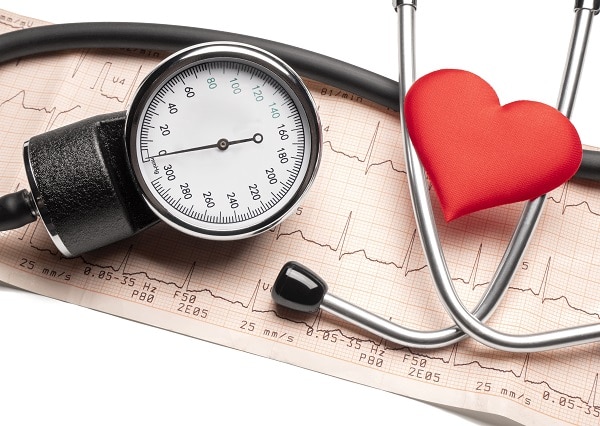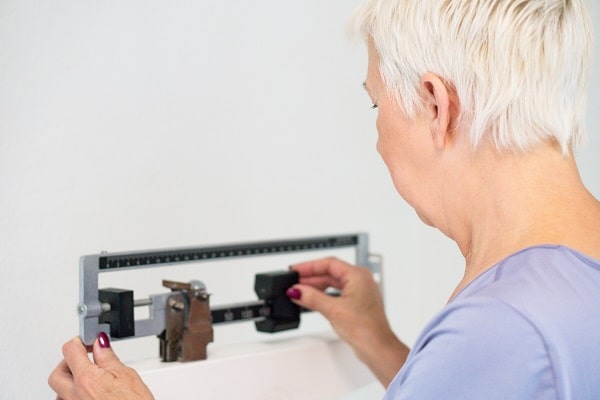What is blood pressure? Quite simply, blood pressure is the force with which your blood pushes against your artery walls. When your heart beats and pumps blood into your blood vessels, your blood pressure is the highest. This is called systolic pressure. The blood pressure between beats is called diastolic pressure. It falls because the heart is at rest here. These two readings give you your blood pressure. If your arteries are narrow, your blood pressure will be higher. A reading of 130/80 mm Hg or more signifies high blood pressure. If your blood pressure reaches over 180/120, you should seek medical assistance immediately because it’s extremely dangerous.

Why does one need to control their blood pressure? While it rises and falls throughout the day, if it stays high for too long, it can become a serious problem, with many negative effects on your health. Blood pressure is one of the leading causes of heart disease, stroke, and kidney failure. High blood pressure has become a very common problem. According to research, about one in three adults in America suffer from it.
Due to the fact that high blood pressure has barely noticeable warning signs, it’s called the “silent killer,” which makes it an even bigger threat. It’s imperative, then, that you make sure you take regular blood pressure checks, so as to know if it’s getting above the normal range. The good news is that just like many other health issues, high blood pressure or hypertension is one that can be controlled, or even avoided altogether with some simple but effective lifestyle changes. In this article, we will be having a look at some of the ways to manage blood pressure and live a healthier life.
Contents
1. Be Mindful of Your Weight

Being overweight has many negative consequences. Amongst these is high blood pressure. As your weight increases, you’ll be more at risk of getting hypertension. Put in some effort in losing the extra pounds you might have accumulated. Generally, with each kilogram of weight you lose, you may reduce your blood pressure by 1 mm Hg. This is, hands down, the most effective tip to manage your blood pressure.
Being overweight means that your heart has to work harder to do its job. This extra strain on it can lead to high blood pressure and also damage your blood vessel. When you lose weight, your blood vessels will find it easier to expand and contract.
To shed some weight, engage in more physical activity, make sure you take in fewer calories and be more careful about what you incorporate into your diet.
2. Get Your Body Moving

You have probably already heard a million benefits of exercising. Well, here’s another; it lowers your blood pressure. As you increase your physical activity, your heart will become stronger and hence, pump blood to the rest of your body with significantly less effort. This will lower your blood pressure.
Make sure that you are consistent because if you stop indulging in exercise, your blood pressure is likely to start rising again. You can try out aerobic exercises that make your heart beat faster and increase your breathing, such as brisk walking, jogging, running, cycling, or swimming. Figure out what type of physical activity you enjoy, since it’ll be easier to stick to it. Try to take out at least half an hour five days a week for some physical exertion, and notice a change in not just your blood pressure, but also your overall health.
3. Watch Your Diet

Your diet affects your blood pressure in many ways. If you want to manage your blood pressure, you need to cut back on sodium or salt. Avoid eating processed, preserved, or canned food since their sodium levels are dangerously high. Make it a habit to read food labels before you purchase something to determine the sodium content.
Instead, eat foods that are high in potassium content. Potassium is great because it lessens the harmful effects salt has on your body. Not only this, but it also reduces the tension in your blood vessels. Some foods that have high potassium content are fish, fresh fruits and vegetables, and low-fat dairy food.
One way to reduce your salt intake, and overall have a diet that will keep your blood pressure in check is to follow the DASH (Dietary Approaches to Stop Hypertension) diet.
If you’re a chocolate lover, you’re in luck. Dark chocolate helps in lowering blood pressure. However, do make sure that it’s 60 to 70n percent cacao in order to reap the benefits.
Apart from these dietary changes, reduce your alcohol consumption, or, better yet, stop consuming it altogether. To practice moderate consumption, have only one glass a day if you’re a woman and two if you’re a man.
4. Keep Your Stress Levels Low

Without a doubt, these times are very stressful for pretty much everyone. However, it is important to make a conscious effort to reduce your stress levels. This is because your stress hormones, such as cortisol, can narrow the blood vessels and increase your blood pressure.
The very first thing to do is figure out what exactly is it that stresses or worries you. Once that’s done, try to eliminate your stressors. Of course, you can’t eliminate all your stressors, but you can definitely cope with them in a healthier manner. There are many different ways to alleviate stress at work. Some of these include breathing exercises, talking it out to someone, walking outside, and so on. You can also try meditating, or listening to calming music.
No matter how busy you are with your work commitments, always spare some time for your hobbies since they will definitely get your mind off from the things that stress you out, and as a result, harm your health in more ways than one.
These lifestyle changes are quite small, but the impact they will have on your health and well-being will be a very remarkable one. Take care of yourself and start following these tips now.
Do you find our content useful? If you want to stay updated, subscribe to our newsletter!


